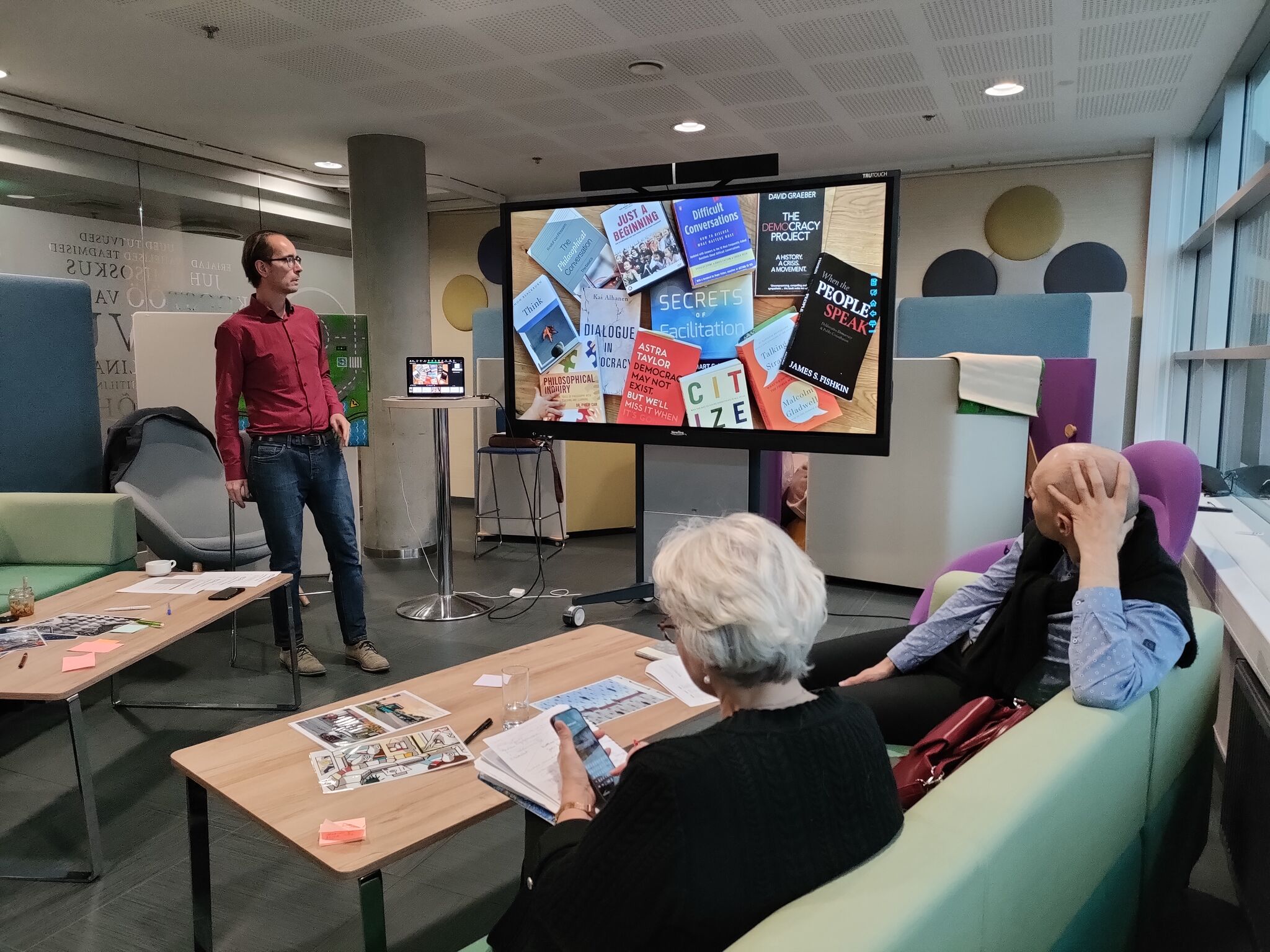Introducing dialogue in the classroom is more than just adding another lesson to an already packed curriculum; it symbolises a fundamental shift in the core values of education.
Based on our experience of working with young people in and outside schools, we identify these four key shifts when introducing dialogue in education:
- The shift from ‘lesson‘ to ‘inquiry‘ – A class is not just a group of individuals expected to learn; their curiosity and thinking capabilities empower them to become a collective of minds researching ideas they believe are important. By listening to each other, testing ideas and arguments, and using their brains to the full, they develop the habit of exploring together.
- The shift from ‘speaking/listening‘ to ‘dialogue‘ – Our learning is most effective when we interact with others. While some subjects are suited to lecturing, many are not. The power of dialogue stems from the ability to ask meaningful questions. Without identifying these questions, any form of lecturing lacks direction.
- The shift from ‘teacher‘ to ‘facilitator‘ – Starting with dialogue in schools encourages teachers to reconsider their role. The good news is that many already do so. When facilitating a dialogue among your students, you move from the front to the back of the class, both mentally and physically. This means supporting students in their mutual conversation in any way you can.
- The shift from ‘top-down‘ to ‘bottom-up‘ – Handing over control of the content of your lessons to the students can be a scary step. However, it is one of the most impactful things you can do as a teacher. Sometimes students need to warm up, but once they start defining their own research questions through group dialogue, you won’t be able to go back.
One of the methods we use is called ‘Philosophy with Children and Young People’. It does not focus on the history of philosophy. Instead, it uses the ability of everyone, young and old, to ask meaningful questions based on what THEY observe, question, believe and find fascinating as the core starting point.
If you would like to find out more about our work with dialogue and young people, please take a look our projects in education. We deliver workshops, organise elective courses and provide lesson plans. We also currently run the Youth Dialogue Lab, which brings together students from different schools every two weeks.
Last Friday we gave a workshop to teachers who are part of the DEMOCRAT Horizon project, let by the Tallinn University. Thank you Maarja Hallik for the invitation and inspiring collaboration.
